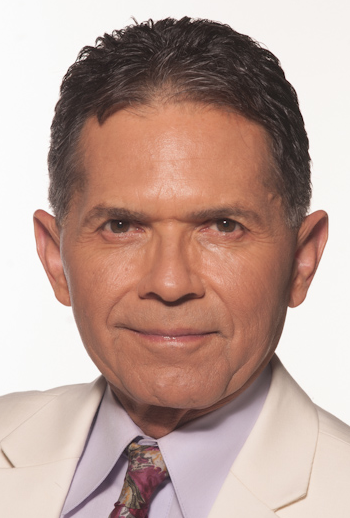Editor’s note: Amigos805 welcomes guest columns, letters to the editor and other submissions from our readers. All opinions expressed in submitted material are those of the author and do not necessarily represent the viewpoint of Amigos805.
By David Magallanes / Guest contributor

David Magallanes
One of the epic works that beneficently grants to humanity the “wisdom of the angels” is Paradise Lost, by the beatifically gifted English poet of the 17th century, John Milton. This classic poem has sent reverberations, of seismic order, throughout English literature since its publication. It is viewed both as a Christian saga about morality as well as a trove of wisdom that applies to us in the modern, technological era as much as it did to humanity at the dawn of civilization.
Speaking of something “lost,” that is what to a large extent has happened to our desire to read—much less study—epic poems, or any serious literature that imparts lessons of great worth—lessons that would render our life journeys less fraught with hopelessness, depression and anger.
Within Paradise Lost are ideas that, if applied to our daily lives, would dramatically alter their landscape. If we were taught anything about Milton’s masterful work, it was that Adam and Eve “blew it,” and were subsequently banished from the paradise that they had been enjoying until they ate the confounded apple.
What we are not told is that the alpha archangelic warrior in the story, Michael, consoles Adam after he is “kicked-off the island” by advising him that if he lives his life in accordance with the tenets of faith, temperance, virtue, patience, obedience, charity and love, then he will not have lost paradise after all. He will, in fact, be far happier in the paradise that he creates within himself.
The power of our thoughts is severely underestimated. Milton writes in Book I of his thought-provoking poem: “The mind is its own place, and in itself can make a heaven of hell, a hell of heaven.” It’s up to us which one we want. This one idea has the ability to change our lives now—not later—profoundly and irrevocably. Once we embrace it, we realize what a grave choice we alone have.
— David Magallanes is a writer, speaker and network marketer consultant. You may visit his web site, dedicated to honoring daughters and keeping them healthy, at www.roses4daughters.com. You may contact him through e-mail at dmagallanes@roses4daughters.com.
***
El Paraíso Perdido…¿Será Cierto?
Por David Magallanes / Columnista invitado
Una de las obras épicas que benéficamente otorga a la humanidad la “sabiduría de los ángeles” es El Paraíso Perdido, por el beatíficamente dotado poeta inglés del siglo XVII, John Milton. Este poema clásico ha provocado reverberaciones, de orden sísmico, a través de la literatura inglesa desde su publicación. Se considera una epopeya cristiana sobre la moralidad tanto como un tesoro de sabiduría que se nos ofrece en esta época moderna y tecnológica tanto como en vísperas de la civilización.
Hablando sobre algo “perdido”, esto es lo que ha ocurrido en gran medida con nuestro deseo de leer—y mucho menos estudiar—los poemas épicos, o cualquier literatura seria que imparte lecciones de mucho valor—lecciones que dejarían nuestras jornadas por la vida menos infundidas de depresión, ira y falta de esperanza.
Dentro de El Paraíso Perdido hay ideas que, si las aplicáramos a nuestras vidas diarias, cambiarían dramáticamente su paisaje. Si se nos hubiera enseñado alguna cosa sobre la obra maestra de Milton, era que Adán y Eva “la regaron” y como consecuencia fueron expulsados de ese paraíso del que gozaban hasta que se comieron esa maldita manzana.
Lo que no se nos dice es que el arcángel guerrero, Miguel, quien estuvo a cargo de los demás ángeles en el relato, consuela a Adán después de que él fue “botado de la isla”, aconsejándole que si llevara su vida según los principios de la fe, la abstinencia, la honra, la paciencia, la caridad y el amor, entonces Adán no habrá perdido el paraíso, al fin y al cabo. De hecho, gozaría de una felicidad mucho más grande en el paraíso que él creara dentro de sí mismo.
El poder de nuestros pensamientos es gravemente subestimado. En Libro I del poema, Milton escribe: “La mente hace su propio lugar, y en sí misma puede hacer un cielo del infierno, y un infierno del cielo”. Nos corresponde a nosotros escoger uno o el otro. Esta misma idea tiene la capacidad para cambiar nuestras vidas ahora mismo—no después—profunda e irrevocablemente. Una vez que la aceptemos, nos damos cuenta de la gravedad de la selección que nosotros—y solamente nosotros—enfrentamos
— David Magallanes es un escritor, orador y consultor de mercadeo por las redes sociales. Usted puede visitar su sitio cibernético, dedicado a la honra y la salud de nuestras hijas, en www.roses4daughters.com. Se puede comunicar con él por e-mail a: dmagallanes@roses4daughters.com.
Editor’s note: Amigos805 welcome comments on stories appearing in Amigos805 and on issues impacting the community. Comments must relate directly to stories published in Amigos805, no spam please. We reserve the right to remove or edit comments. Full name, city required. Contact information (telephone, email) will not be published. Please send your comments directly to frank@amigos805.com
